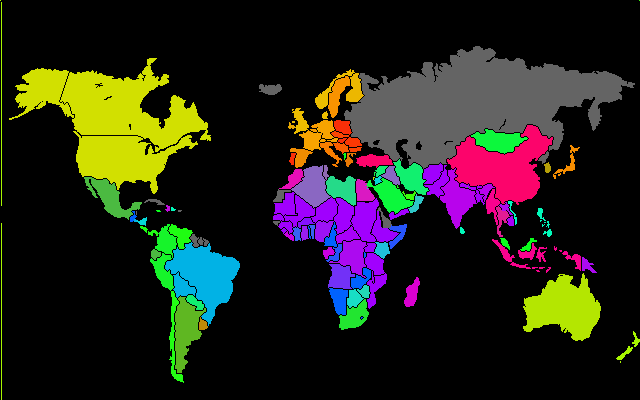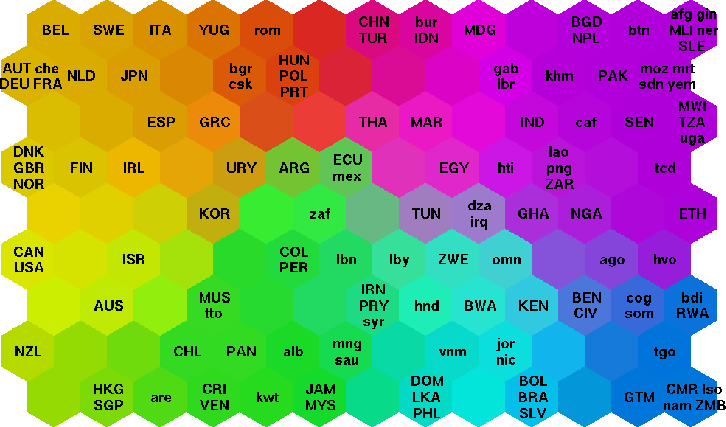World Poverty: Does Science Have an Answer?

Multipolarity Memes (singularitynews) points to an interesting report from Eurekalert titled "Science and the End of Poverty." It details a symposium to take place tomorrow at Columbia University's Earth Institute.
In this symposium, a group of researchers from The Earth Institute at Columbia University, together with colleagues from the University of California Davis and the University of New Hampshire, will examine a range of ways that science can help understand and alleviate the most chronic human suffering.
Human Well-Being and Earth's Natural Extremes
John Mutter, Deputy Director, The Earth Institute at Columbia University
Whether the agent is earthquake, flood, drought, landslide or other natural catastrophe it is now well recognized that the poorest communities suffer most at the hands of nature. Recent global tragedies serve to underscore that similar events cause vastly different outcomes depending on where they occur. So, for instance, the magnitude 7.6 October 2005 earthquake in Pakistan took the lives of more than 30,000 people, but the Northridge earthquake in California, which was similar in magnitude, took less than one hundred lives. This sort of impact disparity is well reported anecdotally and in newspaper reports, as well as quantitatively in analyses by the World Bank in its Disaster Hot Spots Report and by the UNDP in its analysis Disasters and Development. Factors such as population density can be separated out and what remains is a clear signal that disaster vulnerability is strongly correlated with human well-being.
Delivering Energy Services Where there Are None
Vijay Modi, professor and Chair, Department of Mechanical Engineering, Columbia University
The Millennium Development Goals (MDGs) are the international community's commitment to reducing poverty in the world's poorest countries by 2015. UN Secretary-General Kofi Annan commissioned the UN Millennium Project as an advisory body to recommend practical ways to help every country to achieve the MDGs. Although many of the world's poor countries have seen tremendous success in poverty reduction over the past decades and are on track to achieve the MDGs, many others are lagging, particularly in energy services--the services that energy and energy appliances provide. Such services include lighting, heating for cooking and space heating, power for transport, water pumping, grinding, and numerous other services that fuels, electricity and mechanical power make possible. The core message is that energy services are essential to both social and economic development and that much wider and greater access to energy services is critical in achieving all of the MDGs.
The Distribution of the World's Poor as a Function of Biophysical Parameters
Marc Levy, Associate Director, Center for International Earth Science Information Network
Levy and his colleagues suggest that the spatial distribution of global poverty can be understood as a function of biophysical features of the landscape. To do so they make use of a unique geo-referenced global poverty map, built from 10,271 independent sub-national measures of infant mortality, projected onto a gridded geographic database. They then integrate these poverty data with measures of elevation, slope, surface water runoff, drought frequency, length of growing season, distance to coast, malaria vector exposure, eco-region, soil fertility constraints and population density, As a result, they find that there are strong statistical relationships between the spatial distribution of poverty and soil fertility, drought frequency, malaria exposure, and distance to coasts. Some effects vary by region; for example elevation is associated with lower levels of poverty in Africa but higher levels elsewhere.
There you have it. Presumably, the best that science has to offer on the subject of reducing poverty and alleviating its ill effects. Not a bad start. But by now we should be doing a lot more than simply studying the issue. And scientists should stop allowing the luddites of Political Correctness to obstruct meaningful progress in this desperately demanding area.
They are not even trying to get at the underlying basis of poverty. Too bad. Too, too bad. The poor of the world can expect little or nothing from the overwhelming majority of academics and politicos. What will it take, finally?
Consider it a rhetorical question. Unless you think you have an answer, in which case, comments are open.
Explanations for the map at the top, and the chart below, can be found here.


0 Comments:
Post a Comment
“During times of universal deceit, telling the truth becomes a revolutionary act” _George Orwell
<< Home